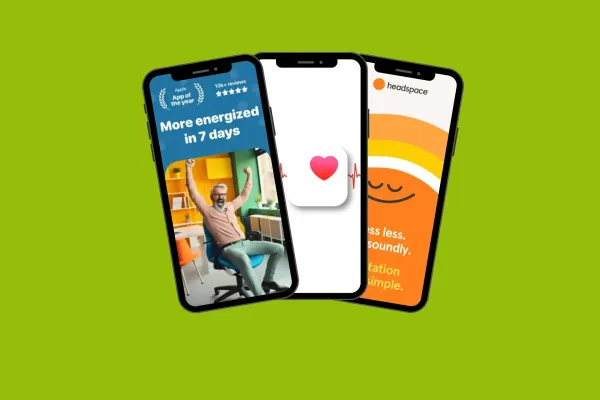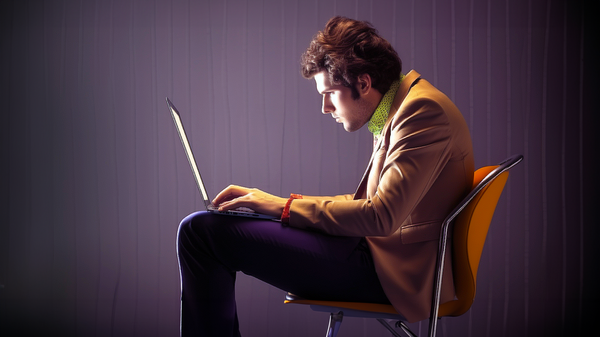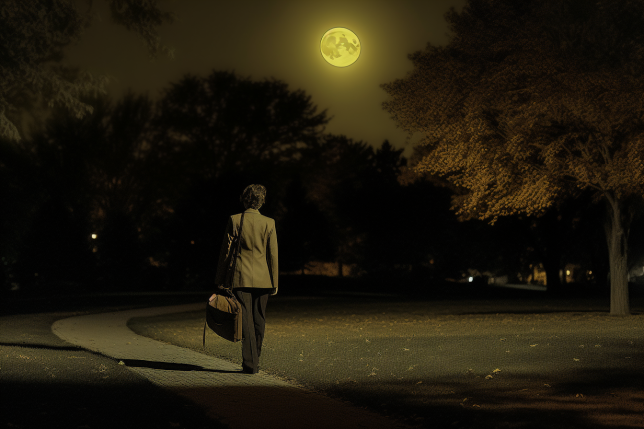Workplace fatigue is an actual underlying epidemic.
Research published in the midst of the COVID-19 pandemic reported that almost half of U.S. employees (48%) feel mental and physical fatigue by the end of the workday. To top that one, almost 1/3 of remote workers report feeling drained, drooping heads, and having lowly energy levels.
There are different factors at play here, but all roads lead to Rome - a sedentary lifestyle takes a huge physical and mental toll on our health. And we thought farmers' lifestyles were heavy... To make things super counterintuitive, you reach higher fatigue levels after a day of sitting than pushing through a 21-Miller.
Truth be told, most of us are starting to accept this hurtful truth. But it is contrary to what working people believed for a long time - that working 9-5 will make you eternally well-rested.
Rewind a tape five or six decades back, and you’d see folks dreaming of delicate pen and paperwork somewhere in a fine, glass-framed, 60-store corporate building holding a cigarette in their hands. Due to some grueling physical work, extended periods at work, and night shifts, folks back then would have laughed their unseated buttocks off at the notion of “back pain due to sitting” or “burnout syndrome”.
Today, there's nothing to laugh about.
How do we fatigue from work?
Work fatigue is a feeling of lack of energy, mental exhaustion, and dearth of motivation associated with or caused by work. Job satisfaction, in this instance, is just something you accidentally read about on the internet - not a prevailing notion.
Workplace fatigue is a normal response to a constant state of stressful and challenging work and usually goes along with the following adverse effects:
- Afternoon drowsiness (can be caused by other things too)
- Apathy, or in other words, giving zero love-making
- Lack of sleep
- Feeling like anything but work
- Eating out everything and your fork (or extreme other, lack of appetite)
In the context of physically demanding jobs, your fatigue from work manifests in, well... mainly physical exhaustion. It's caused by heavy tasks, working in extreme environments (hot, cold, windy, etc.), working night shifts... If you’re coming back home from these conditions, we think you're already well aware of the causes.
Remote work fatigue or office work fatigue is something else. It's way lot subtle to say the least. It arises from the chronic stress at work, repetitive duties that don't engage that wonderful brain of yours, lack of fun and chit-chatting with friends and colleagues, and... drum roll… forever sitting in your couch-like chair, moving your neck only when switching from screen 1 to screen 2, and looking like someone’s tossed a lazy bag on top of an office chair. The sedentary lifestyle, chairman - it’s no good for you. The only prolific thing about sitting in this position endlessly is the number of clicks your finger snaps.
Fatigued from work or something else?
Can sedentary lifestyle cause fatigue? - Sure.
Can work cause fatigue? - Sure.
Can your life choices do the same? Well...
Before we provide you with the “right advice” we better make sure you’re not fighting allergies with a diarrhea treatment.
#1 Just Fatigue
Indeed, just fatigue goes hand in hand with work fatigue, but it doesn't mean you should blame it all on work. Your common fatigue is "easily measured" and caused by the lack of proper sleep, bad nutrition, emotional stress, or excess physical activity.
#2 Burnout
When Etna, the volcano that brought down the ancient city of Pompey, erupted, it first gave warning signs - earthquakes and swollen ground. It then spat stones and breathed out smoke right before it was about to go all-in on magma. However, some volcanos leave it at “warning signs” - they breathe smoke, shake a little, and decide to just fart.
Well… volcano shaking is just like chronic fatigue, and you could parallel burnout with massive magma eruptions. Take burnout for a very serious fatigue that needs your immediate reaction.
A 5-step plan to keep work fatigue at bay
#1 Take care of health basics
For starters, make sure your body and brain are taken care of - properly. It will exclude the possibility of chronic fatigue syndrome sneaking into your work life.
- Squeeze in 6-8 hours of sleep
- Support healthy sleep
- Find time to relax
- Take walks, jog, exercise - whatever gets you to move
- Eat nutritious food
- Drink enough water (and less energy drinks)
- Reduce stimulants (TV, phone, cigarettes, alcohol)
- If you're seated, find time to stretch your lower back
#2 Take exercise breaks

Your fatigued brain and seated body crave movement and proper rest. When the hips get tight and your thinking starts drifting into dream states, it’s time to take active rest and re-energize. That's what the Wakeout app was built for - to make you feel alive and kicking.
While regular exercise after work hours is good for you, your body still suffers from prolonged sitting every day. In a cross-sectional study carried out by J Lifestyle Med, results showed that office workers sit around 6:30 hours on average during their shifts. Sadly, as much as 73.6% reported feeling exhausted during the workday, and a notable amount suffered from high blood pressure and heightened cholesterol levels.
One way - and a good way too - to counter-attack the damaging effects of being stuck to a chair is to break the static patterns - with therapeutic effects of movement, dancing, light boxing, couch stretches, and other playful movements. The point of physical activity breaks is not to distract you from the task at hand - no, no. Quite contrary is true actually. Studies have shown that deliberate work breaks give boost to productivity. It is to give your soul a well-deserved 3-minute break or your back a well-needed tension release.
#3 Change the environment
We, humans, don’t like spending too much time in one place - play it back, and remember the collective cheerlessness during the pandemic. Didn’t feel at all great, did it?
Whenever you notice the fatigue intensifying, remember to refresh your mind with a change in environment. It is precisely what your mind needs - a novelty.
#4 Or should you optimize the environment?
Small changes can put a whole lot of chaos in order. Here's the one such to help you to stop feeling work-exhausted.
If you're experiencing work fatigue, optimization might do the trick to supercharge your work batteries. So many people don't even realize they need this. Schedule a date, make no excuses, put the green gloves on, and prepare a list of office or work areas you wish to improve upon.
Focus to remove the clutter and increase motivation. And get going - optimize to every last detail.
#5 Let the right co-workers know
Most people just crave a simple word of encouragement. An understanding, a willing ear, and a well-intended advice.
You could let your significant other know, reach out to your friends, and even send an e mail to your therapist - they have a track record of giving solid pointers. But, if it often occurs, you could also let your superiors know you’re struggling - they are the ones who can help you reshape the details in your work environment.
Wakeout










